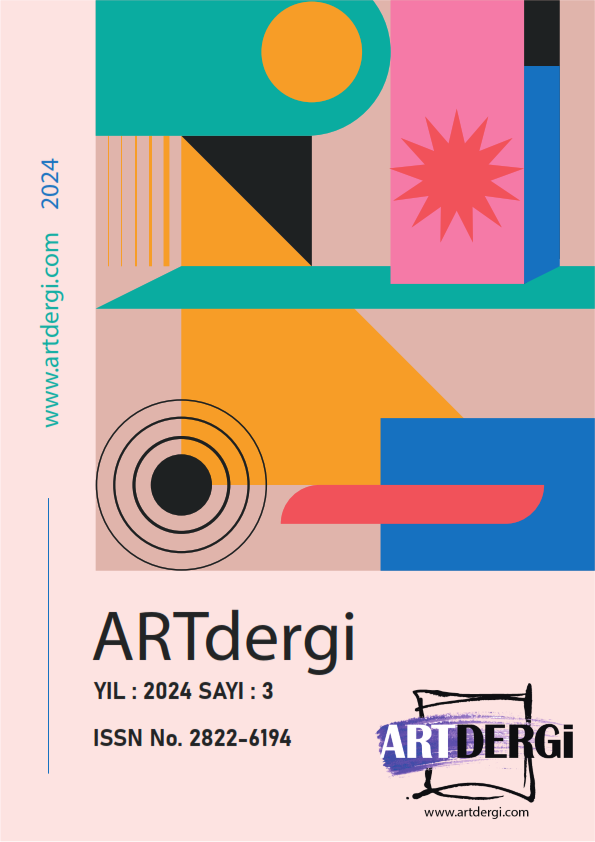Expert Opinions on the Impact of Russian Romances on the Development of Singing Students in Turkey
DOI:
https://doi.org/10.5281/zenodo.14497414Keywords:
Vocal Training, Russian Romances, OperaAbstract
This study examines the role of Russian romances in vocal education in Turkey and assesses their impact on the technical and musical development of vocal students. Russian romances, which draw upon a rich and venerable Russian musical tradition and literature, have the potential to play a significant role in expanding the musical expression, technical skills, and cultural understanding of vocal students. It is assumed that these compositions are not sufficiently known or studied by vocal students in Turkey. The research therefore scrutinizes the possible reasons for this deficiency and explores why vocal students and instructors should engage more frequently with Russian romances. The study was conducted between the years 2011-2012 and employed a snowball sampling method to select 10 vocal instructors with at least 10 years of vocal training experience. Half of the selected instructors are full-time faculty members teaching vocal lessons at conservatories, while the other half comprises artists who are permanent members of the State Opera and Ballet but also teach vocal lessons at various conservatories as guest instructors. The findings from the interviews, observations, and literature review suggest that Russian romances should be included in conservatory curricula and that vocal education approaches should diversify to incorporate compositions in this form. The analysis of the interviewees’ statements indicates that this approach would not only provide students and instructors with a broad musical perspective but also enhance their competitiveness on international stages.
References
Davis, A. Selected Russian Classical Romances and Traditional Songs for Young Singers: Introductory Materials with Teaching Strategies. (Yayınlanmamış Doktora Tezi.) Arizona State University, 2014.
Guseynova, O., & Turkmenoglu, O. Russian romance: synthesis of classical and folk music at the beginning of the 19th century. Journal for the Interdisciplinary Art and Education 2022; 3: 107-121.
Karasar, N. Bilimsel Araştırma Yöntemi. Nobel Yayın Dağıtım, 2002.
Li, E. (2021). On Dramaturgy of Russian Romances of S.V. Rachmaninof. Rupkatha Journal on Interdisciplinary Studies in Humanities 2021; 13(1): 1-15.
Mimaroğlu, İ. Müzik Tarihi. (5. Basım). Varlık Yayınları, 1995.
Olin, E. Singing in Russian: A Guide to Language and Performance. Scarecrow Press, Incorporated, 2012.
Politi, G. The History and Development of the Musical Romans as a Genre. Pamietnik Teatralnys 2023; 72 (2): 147-164.
Robinson, F.R. The Governors’ Minutes of the Conservatory S.Mara Di Loreto, Naples. Royal Music Association Research Chronicle 1972; 10: 1-97.
Ivezic, T.P.E. Alexander Sergeyevich Dargomyzhsky 1813-1869: A Study of His Solo Vocal Works. (Yayınlanmamış Doktora Tezi.) The University of Kentucky, 1997.
Sage,J., Friedmann, S., & Hickman, R. Romance. Grove Music Online, 2001.
Say, A. Müzik Tarihi. (3. Basım). Müzik Ansiklopedisi Yayınları, 1997.
Sevengil, R.A. Türk Tiyatrosu Tarihi II: Opera San’atı ile İlk Temaslarımız. (2. Basım). Milli Eğitim Basımevi, 1969.
Silva, G. & Baker, T. The Beginnings of the Art of “Bel Canto”: Remarks on the Critical History of Singing. The Musical Quarterly 1922; 8 (1): 53-68.
Yıldırım, A. & Şimşek, H. Sosyal Bilimlerde Nitel Araştırma Yöntemleri. (Genişletilmiş 5. Basım). Seçkin Yayıncılık, 2005.

Downloads
Published
How to Cite
Issue
Section
License
Copyright (c) 2024 International Journal of Art, Fashion, Music and Design

This work is licensed under a Creative Commons Attribution-NonCommercial 4.0 International License.

